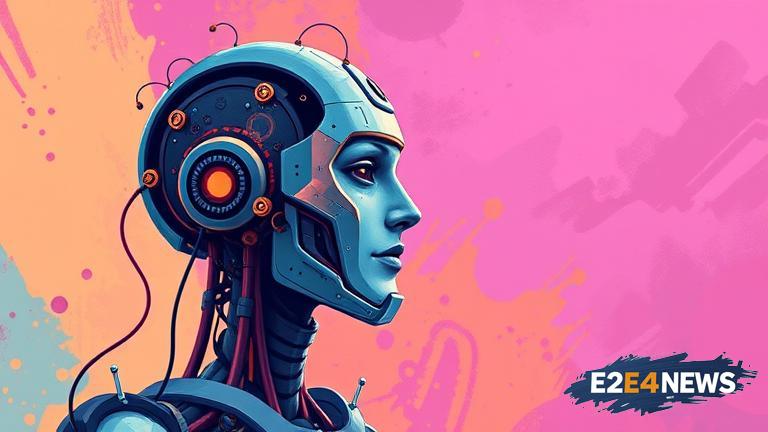XAI, a leading artificial intelligence company, has recently revoked its public benefit corporation status, a move that has raised eyebrows in the tech and business communities. As a public benefit corporation, XAI was committed to prioritizing the well-being of society and the environment, alongside its financial goals. The company’s decision to rescind this status has sparked concerns about the potential consequences for the development and deployment of AI technologies. With the revocation of its public benefit corporation status, XAI is no longer bound by the same social and environmental responsibilities that it once was. This has led to worries that the company may prioritize profits over people, potentially leading to the development of AI systems that exacerbate existing social and economic inequalities. Furthermore, the move has also raised questions about the role of corporate social responsibility in the tech industry, and whether companies like XAI should be held to higher standards when it comes to the development and deployment of powerful technologies like AI. The revocation of XAI’s public benefit corporation status is also likely to have significant implications for the company’s relationships with its stakeholders, including investors, customers, and employees. As a public benefit corporation, XAI was seen as a leader in the tech industry, committed to using its technologies to drive positive social and environmental change. The company’s decision to rescind this status may damage its reputation and erode trust among its stakeholders. In addition, the move may also have implications for the wider AI industry, as it may be seen as a signal that companies are prioritizing profits over people and the planet. The development and deployment of AI technologies is a highly complex and nuanced issue, and one that requires careful consideration of the potential social and environmental impacts. As such, the revocation of XAI’s public benefit corporation status is likely to be seen as a step backwards, and one that may have significant consequences for the future of AI. The company’s decision to rescind its public benefit corporation status has also sparked concerns about the lack of transparency and accountability in the tech industry. As a public benefit corporation, XAI was required to prioritize transparency and accountability, and to report on its social and environmental impacts. The revocation of this status may make it more difficult for stakeholders to hold the company to account, and to ensure that its actions are aligned with its stated values and mission. Moreover, the move has also raised questions about the role of regulation in the tech industry, and whether companies like XAI should be subject to stricter rules and guidelines when it comes to the development and deployment of AI technologies. The development and deployment of AI is a highly regulated area, and one that requires careful consideration of the potential social and environmental impacts. As such, the revocation of XAI’s public benefit corporation status may be seen as a signal that the company is seeking to avoid these regulations, and to prioritize profits over people and the planet. The company’s decision to rescind its public benefit corporation status has also sparked concerns about the potential consequences for the environment. As a public benefit corporation, XAI was committed to prioritizing the well-being of the environment, and to reducing its carbon footprint. The revocation of this status may make it more difficult for the company to achieve these goals, and to ensure that its actions are aligned with its stated values and mission. Furthermore, the move has also raised questions about the role of corporate social responsibility in the tech industry, and whether companies like XAI should be held to higher standards when it comes to the development and deployment of powerful technologies like AI. The revocation of XAI’s public benefit corporation status is likely to have significant implications for the company’s relationships with its stakeholders, including investors, customers, and employees. As a public benefit corporation, XAI was seen as a leader in the tech industry, committed to using its technologies to drive positive social and environmental change. The company’s decision to rescind this status may damage its reputation and erode trust among its stakeholders. In addition, the move may also have implications for the wider AI industry, as it may be seen as a signal that companies are prioritizing profits over people and the planet. The development and deployment of AI technologies is a highly complex and nuanced issue, and one that requires careful consideration of the potential social and environmental impacts. As such, the revocation of XAI’s public benefit corporation status is likely to be seen as a step backwards, and one that may have significant consequences for the future of AI. The company’s decision to rescind its public benefit corporation status has also sparked concerns about the lack of transparency and accountability in the tech industry. As a public benefit corporation, XAI was required to prioritize transparency and accountability, and to report on its social and environmental impacts. The revocation of this status may make it more difficult for stakeholders to hold the company to account, and to ensure that its actions are aligned with its stated values and mission. The revocation of XAI’s public benefit corporation status is a significant development, and one that is likely to have far-reaching implications for the company, the tech industry, and society as a whole. As such, it is essential that stakeholders, including investors, customers, and employees, hold the company to account, and ensure that its actions are aligned with its stated values and mission. The future of AI is a highly complex and nuanced issue, and one that requires careful consideration of the potential social and environmental impacts. As such, the revocation of XAI’s public benefit corporation status is likely to be seen as a step backwards, and one that may have significant consequences for the future of AI.
